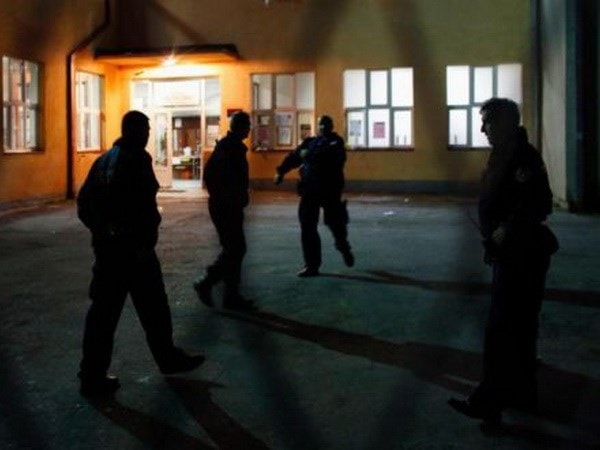Kosovo: Local elections amid tension and violence
Local elections in Kosovo, the first to include the Serb minority since 1999, took place on November 3 amid tension, violence and intimidation, ANSA news agency reported.
The vote by the 40,000-strong Serb minority living in northern Kosovo, which seceded from Serbia despite Belgrade's objections, was the result of negotiations between the Serbian and Kosovo governments, with the EU acting as intermediary.
 |
| Police guard a polling station. (Source: Reuters) |
However, according to some international observers, the first test of symbiosis between voters of these two communities has failed.
Throughout November 3, many far-right groups prevented Serbian voters in the north of Kosovo, where the Serbs are most concentrated, from voting with threats and threats of violence against them if they did.
The most serious incident occurred a few hours before the closing of ballot boxes in Kosovska Mitrovica when Serbian far-right groups broke into three polling stations, beat those present, destroyed ballots and all documents on the scene.
Police were present to disperse these extremist groups. About 5,500 local police and the EU mission in Kosovo (EULEX) participated in protecting this vote.
Statistics show that only 7-12% of Serbian voters in the northern part of Kosovo went to the polls, compared to more than 50% of Serbian minority voters scattered in many other places in the province who came to the polls.
The Belgrade government has condemned the violence by Serbian extremist groups and called on the international community to intervene.
The violence on election day has complicated the situation, in exchange for support on the path to EU accession, Belgrade has called on Kosovo Serbs to vote to create a “Serbian Assembly,” representing a degree of autonomy for Kosovo Serbs in the spirit of the Brussels Agreement signed in April 2013, according to which this election will take place under the auspices of the EU. This Assembly will replace the previous administrative institutions that Belgrade had established for Kosovo Serbs.
According to analysts, the Democratic Party of Serbia (DSS), led by former Prime Minister Vojislav Kostunica, may be behind the extremists. The party called on Kosovo Serbs to boycott the election. However, the DSS has denied this accusation./.
According to VNA






